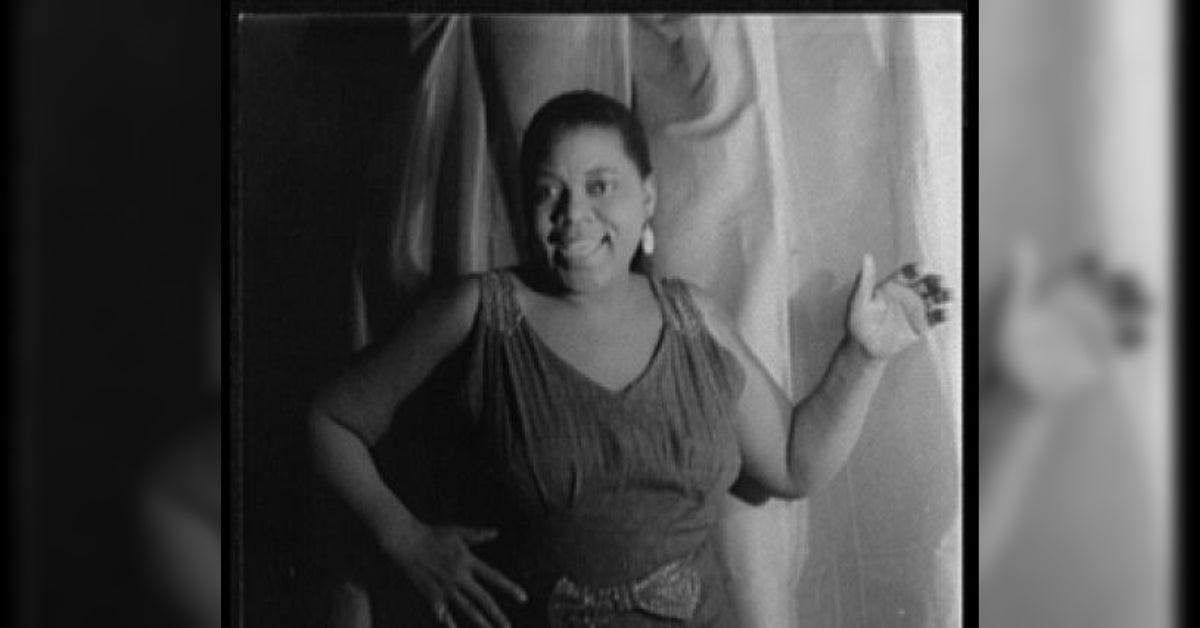Bessie Smith’s ‘Backwater Blues’ flood anthem among works now in public domain
Published 3:17 pm Monday, January 2, 2023

- Portrait of Bessie Smith by photographer Carl Van Vechten, taken in February 1936. (Source: Library of Congress)
A classic Blues song written by the genre’s godmother, Bessie Smith, entered the public domain on Jan. 1, and it’s got a strong tie to the South Mississippi Delta.
The copyright for the 1927 song “Backwater Blues” by Bessie Smith expired on New Year’s Day, meaning it can legally be shared, performed, reused, repurposed or sampled without permission or cost, according to The Associated Press. The works from 1927 were initially supposed to be copyrighted for 75 years, but the 1998 Copyright Term Extension Act delayed opening them up for an additional 20 years.
The Great Flood of 1927 devastated not only the state of Mississippi but Louisiana and Arkansas as well. Its waters covered 16.8 million acres, killed hundreds of people, left another 700,000 homeless, made acres of farmland infrastructure in 170 counties in seven states unusable, and destroyed thousands of businesses.
It also changed the way the U.S. Army Corps of Engineers looked at flood control and led to the birth of the Corps’ Waterways Experiment Station, now known as the Engineering Research and Development Center, in Vicksburg.
However, research and commentary archived by the Library of Congress show that Smith didn’t write the song about the 1927 flood — it was actually written about a Cumberland River flood that hit Nashville on Christmas Day in 1926, during which the waters rose 56 feet over five days and devastated some of the city’s most marginalized communities.
Still, when it was released two months before the worst point of the Great 1927 Flood, it became an anthem for the people of the South Mississippi Delta and served as a foundation for the subgenre now known as “Delta Blues.”
Adding fuel to the song’s solidarity with those affected by the 1927 Flood is evidence that, in addition to the Nashville flood, Smith also wrote the song in solidarity with victims of the flood she encountered in Cincinnati, Ohio.
The Smithsonian Institution estimates that, of the people who lost their homes, more than half a million were Black. This, combined with the fact that local and state governments at the time evacuated white families to safety while herding Black families into makeshift refugee camps, meant many Black people at the time migrated North to cities like Cincinnati, Chicago and Detroit. While it’s impossible to know for certain whether or not Smith had met Delta flood victims while writing “Backwater Blues,” the song did serve as a point of relatability for those in the area who heard it.
Smith died on Sept. 26, 1937, at the age of 43 when a car she was riding in crashed into a truck on U.S. 61 between Clarksdale and Memphis. She sustained critical injuries in the crash that resulted in the amputation of her right arm at the Black hospital in Clarksdale. Smith died following the surgery, likely due to crushing injuries on her right side, in keeping with a side-swipe crash.
Still, her music — largely about the plight of Black people in the American South — served as both social commentary and a blueprint for musical artists of all genres for decades to come.
Much like Smith’s legacy and the legacy of “Backwater Blues,” chronic floods continue in the South Mississippi Delta due to backwater issues as yet unresolved by the federal government. The most recent major flood took place in 2019, during which backwater sat in the South Delta for nearly seven months.
Duke’s Center for the Public Domain highlighted notable books, movies, and musical compositions entering the public domain — just a fraction of the thousands due to be unleashed in 2023.
BOOKS
— “The Gangs of New York,” by Herbert Asbury (original publication)
— “Death Comes for the Archbishop,” by Willa Cather
— “The Big Four,” by Agatha Christie
— “The Tower Treasure,” the first Hardy Boys mystery by the pseudonymous Franklin W. Dixon
— “The Case-Book of Sherlock Holmes,” by Arthur Conan Doyle
— “Copper Sun,” by Countee Cullen
— “Mosquitoes,” by William Faulkner
— “Men Without Women,” by Ernest Hemingway
— “Der Steppenwolf,” by Herman Hesse (in German)
— “Amerika,” by Franz Kafka (in German)
— “Now We Are Six,” by A.A. Milne with illustrations from E.H. Shepard
— “Le Temps retrouvé,” by Marcel Proust (in French)
— “Twilight Sleep,” by Edith Wharton
— “The Bridge of San Luis Rey,” by Thornton Wilder
— “To The Lighthouse,” by Virginia Woolf
MOVIES
— “7th Heaven,” directed by Frank Borzage
— “The Battle of the Century,” a Laurel and Hardy film directed by Clyde Bruckman
— “The Kid Brother,” directed by Ted Wilde
— “The Jazz Singer,” directed by Alan Crosland
— “The Lodger: A Story of the London Fog,” directed by Alfred Hitchcock
— “Metropolis,” directed by Fritz Lang
— “Sunrise,” directed by F.W. Murnau
— “Upstream,” directed by John Ford
— “Wings,” directed by William A. Wellman
MUSICAL COMPOSITIONS
— “Back Water Blues,” “Preaching the Blues” and “Foolish Man Blues” (Bessie Smith)
— “The Best Things in Life Are Free,” from the musical “Good News” (George Gard “Buddy” De Sylva, Lew Brown, Ray Henderson)
— “Billy Goat Stomp,” “Hyena Stomp” and “Jungle Blues” (Ferdinand Joseph Morton)
— “Black and Tan Fantasy” and “East St. Louis Toodle-O” (Bub Miley, Duke Ellington)
— “Can’t Help Lovin’ Dat Man” and “Ol’ Man River,” from the musical “Show Boat” (Oscar Hammerstein II, Jerome Kern)
— “Diane” (Erno Rapee, Lew Pollack)
— “Funny Face” and “’S Wonderful,” from the musical “Funny Face” (Ira and George Gershwin)
— “(I Scream You Scream, We All Scream for) Ice Cream” (Howard Johnson, Billy Moll, Robert A. King)
— “Mississippi Mud” (Harry Barris, James Cavanaugh)
— “My Blue Heaven” (George Whiting, Walter Donaldson)
— “Potato Head Blues” and Gully Low Blues” (Louis Armstrong)
— “Puttin’ on the Ritz” (Irving Berlin)
— “Rusty Pail Blues,” “Sloppy Water Blues” and “Soothin’ Syrup Stomp” (Thomas Waller)
The Associated Press contributed to this report.





